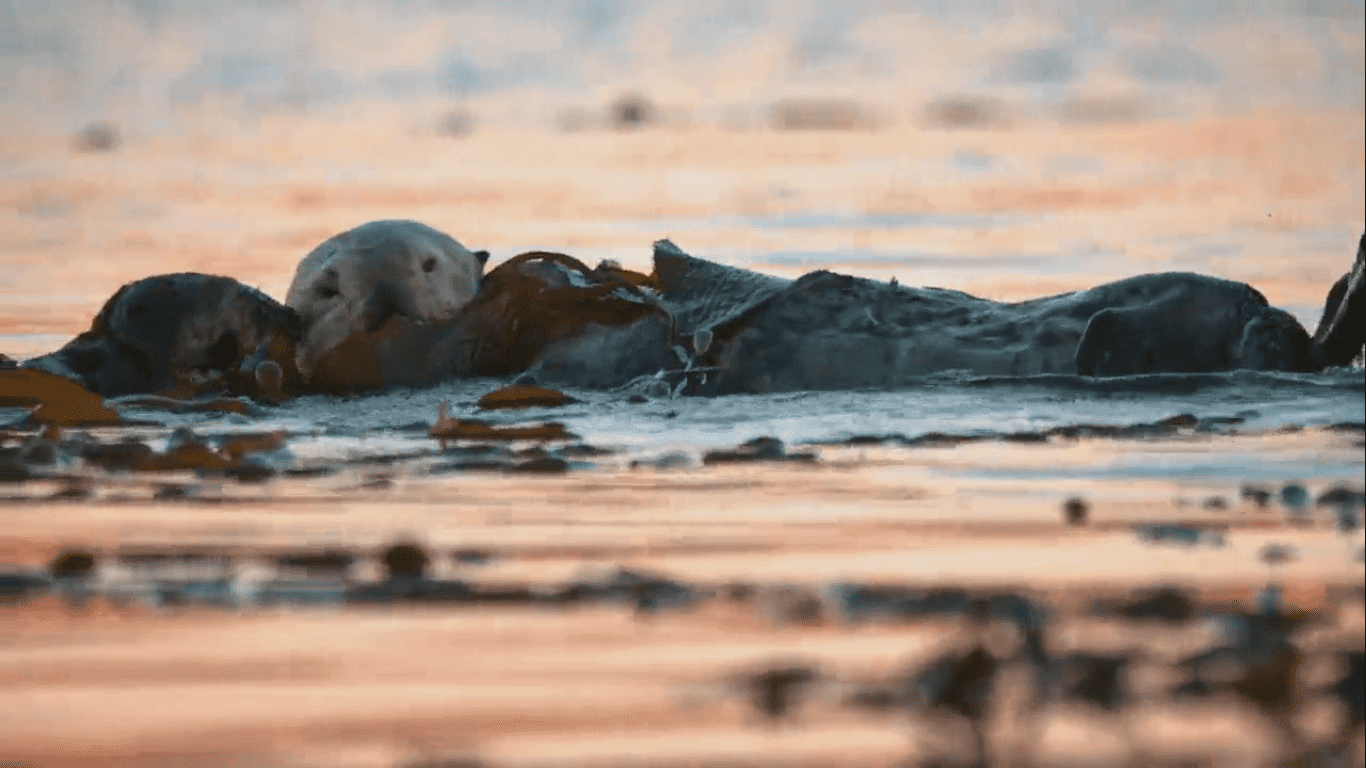'Shark Week' 2020 | 'Great White Serial Killer Extinction': Do kelp forests help curb shark attacks on otters?

Researchers have observed that shark bites are uncommon in areas where there are lots of kelp. The school of thought has always been that if you are in kelp you are safe from the Great Whites because they don't go into the kelp. Investigators explore this theory in 'Great White Serial Killer Extinction', a shark special that is part of the annual 'Shark Week' marathon on the Discovery Channel. They aim to find out if otters that seek refuge among kelp forests become prey to fatal shark attacks.
Otters are usually rendered helpless against shark attacks since they are commonly found floating on their back. Great Whites typically attack from below or behind, delivering a massive mortal wound with a single bite. An animal floating on its back is much more enticing to a shark than one showing its face. Otters on their back cannot see the sharks closing in on them and the sharks are aware of the same. Shark bites on otters however mild are almost always fatal. Scientists have studied Great Whites' hunting patterns for years and find that sharks often prey on seals and sea lions. As a survival tactic, seals off of the coast of South Africa have been seeing darting into thick kelp forests to evade predators.

Large sharks like to hunt near drop-offs, in-between sandbanks, and on the edge of kelp forests where the circle around the area waiting to surprise their prey that is swimming through. Great Whites tend to avoid venturing into areas with dense seaweed growths because they obstruct their gills. Otters wrap themselves in kelp whilst in the water to keep from floating away while they are asleep. Kelp canopies help hide their silhouettes making them less of a visual target to the white sharks that are swimming in the perimeter.
The shark attacks on otters off California's Morro Bay have been rampant. More than 200 otters fall victim to aggressive shark attacks, but they are not hunted down by the ocean's apex predator for food. Investigators believe they are attacked because of a case of mistaken identity as their silhouette resembles their usual blubbery prey. The kelp forests in California are in serious decline, having depleted by 90 percent in 2014. Researchers presume that this could be one reason as to why numerous otters have been killed in recent years.
Sharks off the coast of Guadalupe Island become the subject of their experiments. These sharks migrate around Mexican waters and are acquainted with otters, possibly have perpetrated many of the reported attacks on them. Investigators use a dummy otter, wrapped in kelp, and descend into a shark cage to find out if it truly is the kelp that deters sharks from their prey or a large expanse of thick kelp growth. Throwing the dummy into the ocean as bait, they wait to see if the sharks react to it. Several sharks surround the otter and the cage simultaneously, and all but one recoil from the kelp-wrapped otter. The shark that does attack, however, flees only moments after inflicting its attack.
'Great White Killer Extinction’ aired on Tuesday, August 11, at 10 pm on Discovery Channel.










